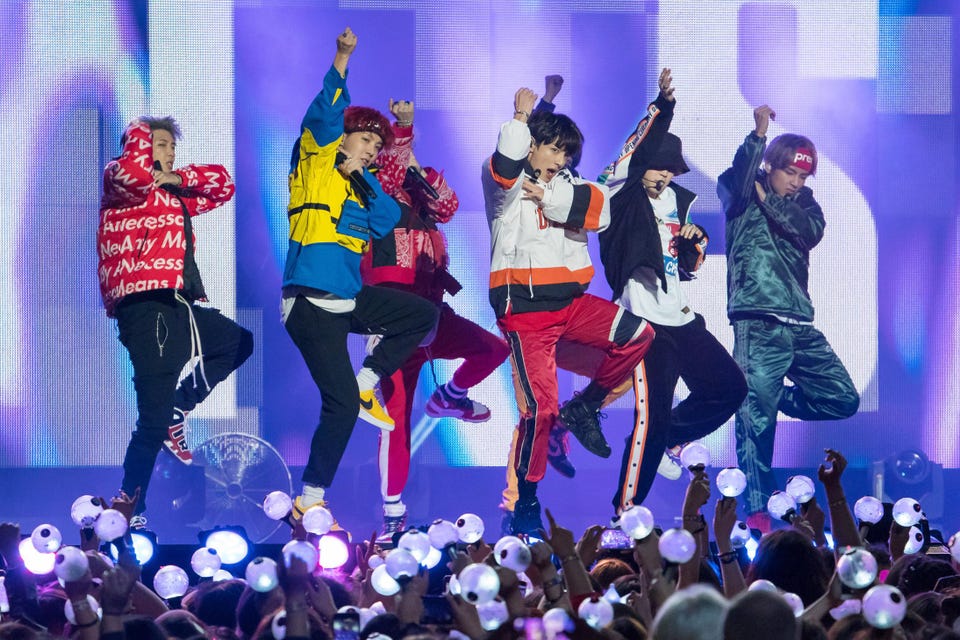Hollywood & Entertainment The New Normal: Why More Countries Are Developing National Music Strategies Shain Shapiro Contributor Opinions expressed by Forbes Contributors are their own. Founder/Chairman – Sound Diplomacy & ED – Center for Music Ecosystems Following New! Follow this author to stay notified about their latest stories. Got it! Sep 27, 2022, 07:03am EDT | New! Click on the conversation bubble to join the conversation Got it! Share to Facebook Share to Twitter Share to Linkedin A few weeks ago, Thailand’s Creative Economy Agency launched a strategy , aimed at competing with and over time, overtaking Korea’s K-Pop as a global cultural phenomenon.
The strategy, according to the agency’s director Chakrit Pichyangkul, wants to globalise Thai popular culture by promoting three pillars – people, businesses and locations. One of the initial projects, interestingly, is a metaverse culture lab, whose objective is to ensure whatever is done in real life is mirrored online, a strategy that Korean record labels and management companies have been deploying for over a decade. At the same time, halfway around the world, Zimbabwe has published a UNESCO supported music strategy , aimed at developing artists and music IP to boost the country’s GDP and create new jobs.
There, the government’s stated objective is to develop a sustainable music industry and “utilise music as a tool for enhancing the country’s image and harnessing the Zimbabwean diaspora for consumption and investment in the sector. ” K-Pop may be first, but next we may see T-Pop, or Z-Pop. LOS ANGELES, CA – NOVEMBER 15: Korean K-pop band ‘BTS’ are seen at ‘Jimmy Kimmel Live’ on November .
. . [+] 15, 2017 in Los Angeles, California.
(Photo by RB/Bauer-Griffin/GC Images) GC Images The development of the Korean pop music and culture sector, or Hallyu as it is referred to, was a two-decade long, patient and intentional state-structured process. Following a recession, a number of progressive policy makers recognised the potential impact of music and culture as a way out of debt. In 1997, after being humiliated in asking the IMF for an emergency loan to tackle a financial crisis, investment was directed to a publicly managed national rebranding exercise based on music, art and culture streams.
What emerged is what we are seeing in BTS, NCT 127 or Girlpink, but each stream began with education programs and talent development support initiated, funded and directed in the public interest and with public money. What is being celebrated now may not be a model that works everywhere, but it demonstrates what could be true anywhere – that there is economic and social potential in music and culture and with it, the benefits of soft power and positive national branding. As countries and regions look to establish economic recovery policies and create socially sustainable economies which extract less from our environment, music and culture is recognised as a viable path.
The raw materials are extracted from our minds, not the ground. And the options are limitless. This is something to celebrate, as there will never be ‘peak’ music, unlike what we’re facing with peak oil.
National and intergovernmental agencies are listening and in more places than ever and influenced by South Korea, acting, strategising and spending. For example, the Organization of American States has partnered with the Government of Dominica to develop a strategy that explores how to create long-term, salaried jobs in the creative economy. In the Caribbean, music is often a part-time pursuit, as most opportunities, bar a few superstars, are in the cash-in-hand tourism-led creative economy, one dependent on externalities, such as weather and capital flows.
A project from Chinese giant Tencent and Billboard Magazine called Chinese Music Gravity aims to promote Chinese pop music around the world. Even Oman has been exploring music intentionally, using an Arabic hit as a tool to promote the country as an investment opportunity. The continued success of Spanish language artists in English charts , from Rosalia to J.
Balvin, further confirms the opportunity. This is an encouraging start, but there have been far more failures than successes. The downfall of these initiatives is that they come and go, like the governments that introduce them.
Music is a long-term investment, as South Korea demonstrates. Canada initiated a content quota in 1971 and has been investing in funding music across all genres and disciplines ever since. It may take a decade or two for an artist from China, or Zimbabwe, or Thailand, to gain a significant fanbase abroad.
This has yet to be recognised or well understood. Drafting a strategy is one thing. Following through over a long period with education investment, infrastructure and grassroots policies that ensure music is taken seriously in local and national contexts is another.
Until Psy’s unlikely hit Gangnam Style in 2012, few Korean artists broke through globally. And this was 15 years after the initial policy and investment were launched to develop Korean music and culture for international audiences. But this expansion of nations treating music seriously is encouraging.
Mexico, for example, published its first ever report chronicling the size of its commercial sector. Belize is embarking, for the first time, on an international music tourism plan . The Philippines is readying one as well.
MORE FOR YOU ‘Dune’ Tops Foreign Box Office With Promising $77M Cume ‘Shang-Chi’ Box Office: Marvel Movie Tops $360M Worldwide 4 Series Coming To Netflix In October That Are Worth The Binge With these strategies comes more music, more stories introducing new cultures and experiences and, if talented artists find audiences, more income and jobs. Follow me on Twitter or LinkedIn . Check out my website .
Shain Shapiro Editorial Standards Print Reprints & Permissions.
From: forbes
URL: https://www.forbes.com/sites/shainshapiro/2022/09/27/the-new-normal-why-more-countries-are-developing-national-music-strategies/



